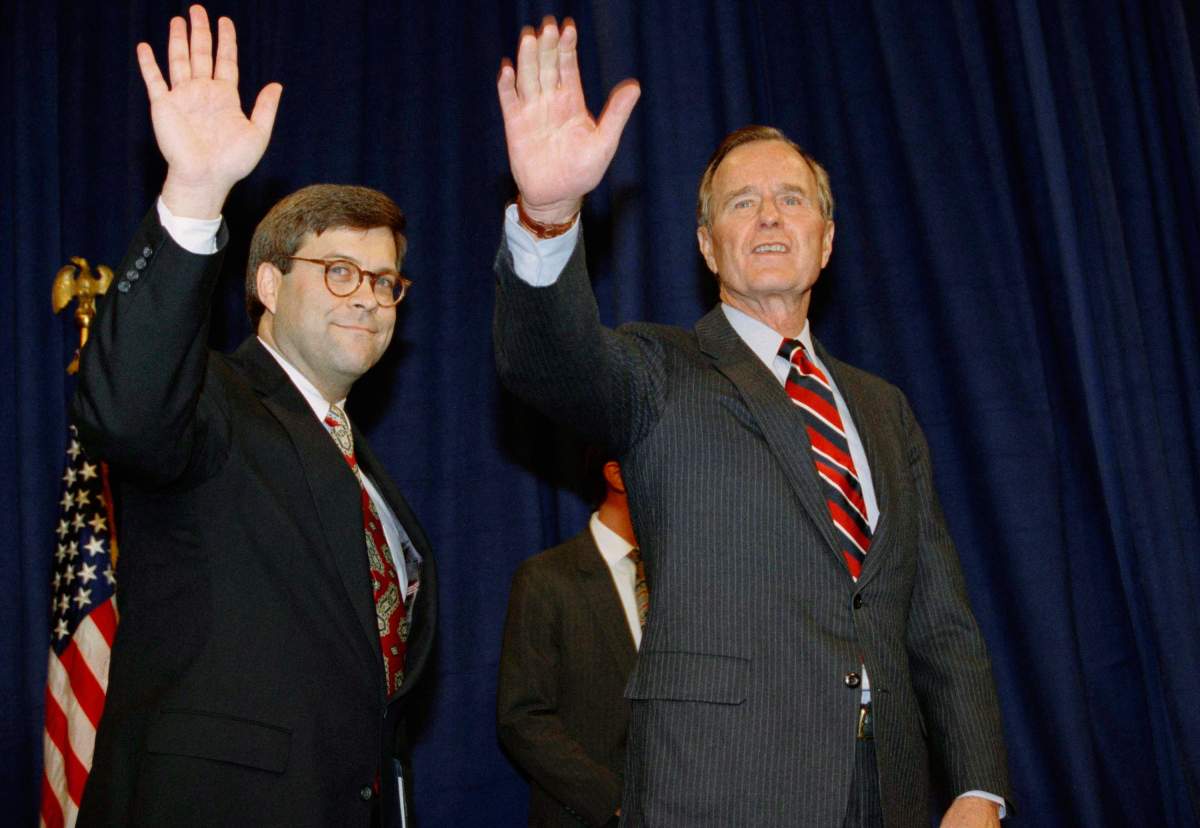U.S. President Donald Trump on Friday said he would nominate William Barr to serve as attorney general, who had this role once before under former president George H.W. Bush.

The role is in charge of the probe into Russian election interference and possible collusion between Moscow and the Trump campaign.
If confirmed by the Senate, Barr would succeed Attorney General Jeff Sessions, who was forced out by Trump in November and who infuriated the president by stepping aside from the Russia investigation. Sessions’ decision helped set in motion Mueller’s appointment. Trump has elevated Sessions’ chief of staff, Matthew Whitaker, to acting attorney general.

Barr was “my first choice from day one,” and “a terrific man, a terrific person, a brilliant man,” Trump said, speaking to reporters outside the White House.
Barr was attorney general between 1991 and 1993, serving in the Justice Department at the same Mueller oversaw the department’s criminal division. Barr later worked as a corporate general counsel and is currently of counsel at a prominent international law firm, Kirkland & Ellis LLP.

Democrats would presumably want reassurances that Barr, who as attorney general would be in position to oversee Mueller’s investigation, would not do anything to interfere with the probe. An attorney general opposed to the investigation could theoretically move to cut funding or block certain investigative steps. But depending on how long the confirmation process takes, it is not clear how much of the investigation would remain by the time a new attorney general takes office.
“What I have said, without mentioning Mr. Barr – I’ve said, the best thing the administration can do is to get somebody who had majority support from Republicans and Democrats alike for attorney general. Those are the best attorneys general,” said Democratic Sen. Patrick Leahy of Vermont, a member of the Senate Judiciary Committee, which would hold hearings on a nominee.

Get daily National news
Still, while in private practice, Barr has occasionally weighed in on hot-button investigative matters in ways that could prompt concerns among Democrats.
He told The New York Times in November 2017, in a story about Sessions directing his prosecutors to look into actions related to Trump rival Hillary Clinton, that “there is nothing inherently wrong about a president calling for an investigation” – though Barr also said one should not be launched just because a president wants it.
He said there was more basis to investigate a uranium deal approved while Clinton was secretary of state in the Obama administration than potential collusion between Russia and the Trump campaign.
“To the extent it is not pursuing these matters, the department is abdicating its responsibility,” Barr told the newspaper.
WATCH: Matt Whitaker commends Trump over nominee for AG

He also wrote an op-ed for The Washington Post in May 2017 defending Trump’s decision to fire former FBI Director James Comey, one of the actions Mueller has been examining for possible obstruction of justice.
He was quoted two months later in a Post story as expressing concern that members of Mueller’s team had given contributions to Democratic candidates.
“In my view, prosecutors who make political contributions are identifying fairly strongly with a political party,” Barr said. “I would have liked to see him have more balance on this group.”
— With files from Reuters
- Canadian government still using X amid platform’s child sex abuse material scandal
- Macron says Canada ’51st state’ threats an example of U.S. rejecting allies
- Danielle Smith calls on Carney to speed up major project approvals
- Chrystia Freeland’s resignation as MP takes effect, with byelection to come













Comments